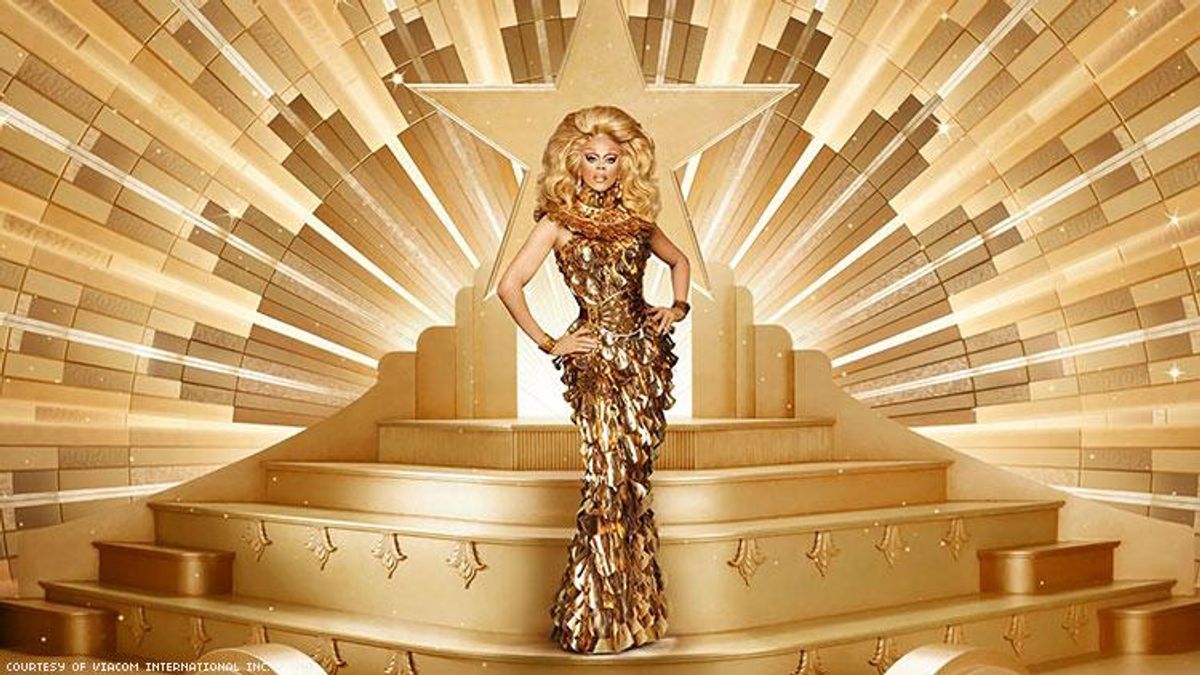television
How RuPaul Became the Star of Sundance

During a festival of high cinematic art, RuPaul's Drag Race may have been the biggest draw.
February 02 2018 6:27 AM EST
October 31 2024 6:28 AM EST
By continuing to use our site, you agree to our Private Policy and Terms of Use.

During a festival of high cinematic art, RuPaul's Drag Race may have been the biggest draw.
When it comes to television, there are varying measures of success. There's press. There are Emmys. But the true measure of a great show is in seasons -- demonstrating its ability to endure on-screen and grow with its audience. Nine seasons in, RuPaul's Drag Race has carved its legacy in television. But it has come to be seen as art too, particularly in Park City, Utah.
Last week, RuPaul made his debut at the Sundance Flm Festival. The event's emphasis is on film. The prestiguous, indie-centric festival has prided itself of being an oasis for high art cinema. Only recently has it allowed episodic content into competition. The Sundance labs (which have developed some of the most influential storytellers in the Oscar scene, like Damien Chazelle and Ryan Coogler) might have started developing television creators, but the program is less than five years old. In 2018, the indie television section garnered few sales and small crowds.
Up to now, television wasn't considered high art in the festival scene, let alone something worth watching. So how on Earth did not just a TV show -- but a reality competition looking for America's next drag superstar -- end up as one of the festival's main events?
Because in 2018, RuPaul's Drag Race (and drag itself) is high art.
Sundance best described its reasoning behind its Drag Race retrospective in the festival program:
What began as an unabashed celebration of the art of drag soon became a cultural sensation, as poignant and uplifting stories about the human experience surfaced throughout. From intimately personal revelations to unprecedented representation, and from fierce confidence to touching support, the show is still a beacon for all those who dare to be themselves. Its ebullient and Emmy-winning host, RuPaul Charles, reminds us that it's possible to find love for ourselves -- and others -- despite any adversity that life throws our way. In Ru's words, "If you can't love yourself, how in the hell you gonna love somebody else?" Can I get an amen up in here?
Amen, copywriter. Amen to that.
The retrospective, which featured clips of the VH1 hit, included a panel discussion with RuPaul Charles; Randy Barbato, Fenton Bailey, and Tom Campbell from World of Wonder, the company that produces the show; and executive producer Pamela Post.
"Good reality T.V. needs freaks," said Campbell, "On this show, freak is not a bad word. We don't make fun of freaks. We celebrate freaks." The crowd burst into applause.
The crowd, who were in Utah to see films about kindergarten teachers writing poetry and documentaries about archeological digs of deceased grannies' homes, came out for RuPaul in droves. And it wasn't just during the retrospective. Sundance didn't just give RuPaul an award but let him do the award-giving. The 2018 NEXT Innovator Award, which recognized the most innovate film in the NEXT category (the category for innovative film, so best of the best) was selected by one juror: RuPaul.
\u201c.@RuPaul has declared a tie for the inaugural NEXT Innovator Award! Congrats to both @nightcomeson, directed by @JordanaSpiro, and @TheAnimalsFilm, directed by Jeremiah Zagar. #sundance\u201d— SundanceFilmFestival (@SundanceFilmFestival) 1517107578
Any award from Sundance is career-changing, so to have that power as a reality TV host is unheard of. At the ceremony, RuPaul maintained the demeanor that has brought him to this height, joking to the audience, "I brought my purse 'cause I don't trust no bitches." Afterward, he DJed the festival's official after-party, dancing like a dream or at least a dream come true.
\u201c.@RuPaul dancing to Bowie just felt like the perfect ending to #Sundance. Wow, what an adventure \ud83d\ude0a\u201d— Bay Dariz (@Bay Dariz) 1517158922
Here's our dream all-queer cast for 'The White Lotus' season 4